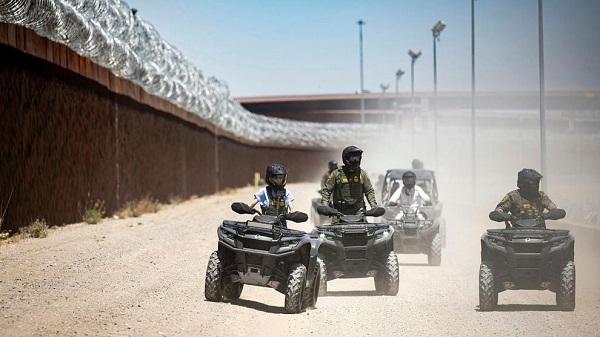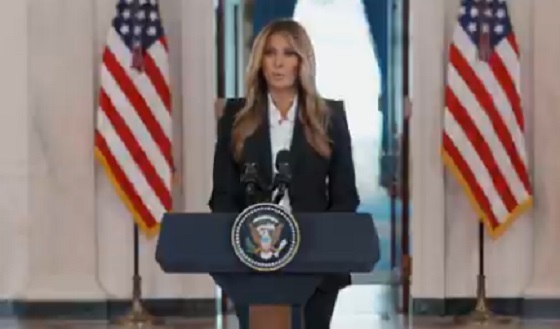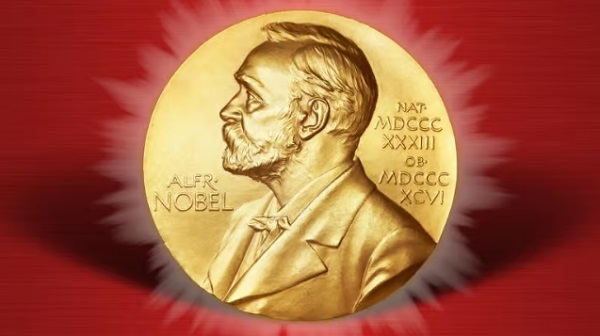2025 Federal Election
BREAKING from THE BUREAU: Pro-Beijing Group That Pushed Erin O’Toole’s Exit Warns Chinese Canadians to “Vote Carefully”

 Sam Cooper
Sam Cooper
As polls tighten in Canada’s high-stakes federal election—one increasingly defined by reports of Chinese state interference—a controversial Toronto diaspora group tied to past efforts to topple former Conservative leader Erin O’Toole has resurfaced, decrying what it calls a disregard for favoured Chinese Canadian voices in candidate selection.
At a press conference in Markham yesterday, the Chinese Canadian Conservative Association (CCCA) accused both the Liberal and Conservative parties of bypassing diaspora input and “directly appointing candidates without consulting community groups or even party members.”
In what reads as a carefully coded message to the Chinese diaspora across Canada, Mandarin-language reports covering the event stated that the group “stressed at the media meeting that people should think rationally and vote carefully,” and urged “all Chinese people to actively participate and vote for the candidate they approve of—rather than the party.”
The CCCA’s latest press conference—surprising in both tone and timing—came just weeks after political pressure forced the resignation of Liberal MP Paul Chiang, following reports that he had allegedly threatened his Conservative opponent, Joseph Tay—now the party’s candidate in Don Valley North—and suggested to Chinese-language journalists that Tay could be handed over to the Toronto consulate for a bounty.
Chiang, who had been backed by Prime Minister Mark Carney, stepped down amid growing concern from international NGOs and an RCMP review.
One of the CCCA’s leading voices is a Markham city councillor who campaigned for Paul Chiang in 2021 against the Conservatives, and later sought the Conservative nomination in Markham against Joseph Tay. While the group claims to represent Conservative-aligned diaspora interests, public records and media coverage show that it backed Paul Chiang again in 2025 and is currently campaigning for Shaun Chen, the Liberal candidate in the adjacent Scarborough North riding.
The Toronto Sun reported today that new polling by Leger for Postmedia shows Mark Carney’s Liberals polling at 47 percent in the Greater Toronto Area—just three points ahead of Pierre Poilievre’s Conservatives at 44 percent. In most Canadian elections, this densely populated region proves decisive in determining who forms government in Ottawa.
In a statement that appeared to subtly align with Beijing’s strategic messaging, the group warned voters:
“At today’s press conference, we called on all Canadian voters: please think rationally and vote carefully. Do not support parties or candidates that attempt to divide society, launch attacks or undermine important international relations, especially against countries such as India and China that have important global influence.”
In a 2024 review of foreign interference, the National Security and Intelligence Committee of Parliamentarians (NSICOP) warned that nomination contests in Canada remain highly vulnerable to manipulation by state-backed diaspora networks, particularly those run by Chinese and Indian diplomats.
The report found that these networks have “directed or influenced Canadian political candidates,” with efforts targeting riding-level nominations seen as a strategic entry point for foreign influence.
The Chinese Canadian Conservative Association first attracted national attention in the wake of the 2021 federal election, when it held a press conference blaming then-Conservative leader Erin O’Toole’s “anti-China rhetoric” for the party’s poor showing in ridings with large Chinese Canadian populations.
At that event, CCCA’s lead spokesperson—a York Region councillor and three-time former Conservative candidate—openly defended Beijing’s position on Taiwan and Canada’s diplomatic crisis over the “two Michaels,” claiming China’s detention of Michael Kovrig and Michael Spavor only occurred because “Canada started the war.”
The councillor also criticized Canada’s condemnation of China’s human rights abuses, saying such statements “alienate Chinese voters.”
The group’s views—repeatedly echoed in Chinese-language media outlets close to the PRC—resonate with talking points promoted by the Chinese Communist Party’s United Front Work Department, a political influence operation run by Beijing that seeks to mobilize ethnic Chinese communities abroad in support of Party objectives.
Shortly after denouncing O’Toole’s China policy, the CCCA publicly endorsed Brampton Mayor Patrick Brown to replace him—a candidate known for cultivating strong relationships with United Front-linked groups. Brown gave a speech in 2022 at an event co-organized by the Confederation of Toronto Chinese Canadian Organizations (CTCCO)—a group repeatedly cited in Canadian national security reporting for its alignment with PRC political messaging and its close working relationship with the Chinese consulate in Toronto.
CTCCO also maintains ties with Peter Yuen, a former Toronto Police Deputy Chief who was selected as Mark Carney’s Liberal candidate in the riding of Markham–Unionville. As first revealed by The Bureau, Yuen joined a 2015 Ontario delegation to Beijing to attend a massive military parade hosted by President Xi Jinping and the People’s Liberation Army, commemorating the CCP’s victory over Japan in the Second World War. The delegation included senior CTCCO leaders and Ontario political figures who, in 2017, helped advocate for the establishment of Nanjing Massacre Memorial Day and a monument in Toronto—a movement widely promoted by the Chinese consulate and supported by figures from CTCCO and the Chinese Freemasons of Toronto, both of which have been cited in United Front reporting.
Yuen also performed in 2017 at diaspora events affiliated with the United Front Work Department, standing beside CTCCO leader Wei Cheng Yi while singing a patriotic song about his dedication to China—as the Chinese Consul General looked on.
The Bureau is a reader-supported publication.
To receive new posts and support my work, consider becoming a free or paid subscriber.
Invite your friends and earn rewards
2025 Federal Election
Protestor Behind ‘Longest Ballot’ Chaos targeting Poilievre pontificates to Commons Committee

Lawmakers confront organizer Tomas Szuchewycz for flooding ridings with placeholder candidates, targeting Pierre Poilievre’s seat, and wasting public resources.
Szuchewycz’s most notorious move came in Carleton — the riding of Conservative Leader Pierre Poilievre, where the ballot swelled to 91 names, stretching nearly a metre and forcing Elections Canada to redesign how it printed and handled the vote. The LBC framed the stunt as a protest against Canada’s first-past-the-post electoral system. But to most voters, it looked nothing like a principled reform campaign. What they saw was an effort aimed squarely at Poilievre, meant to bury his name among a wall of nobodies and turn the vote into a farce.
Elections Canada had to scramble to manage the chaos: printing extra‑long ballots, re‑training workers, and creating a last‑minute write‑in workaround in Battle River–Crowfoot to keep ballots usable. Seniors and disabled voters complained about the physical size and complexity of the ballot; poll workers faced new logistical headaches; public money was wasted.
At Tuesday’s hearing, Szuchewycz showed no contrition and offered no practical alternative to the system he had tried to upend. Instead, he accused MPs of having a “conflict of interest” in writing election law and demanded that power be handed to an undefined “permanent, non‑partisan body” — without explaining who would select it, how it would operate, or how it would be accountable to Canadians.
The LBC, whose actions led to metre-long ballots in ridings like Carleton (91 candidates) and Battle River–Crowfoot (86), claims to oppose Canada’s first-past-the-post system. But when asked how his proposed independent reform body would be formed, selected, or held accountable, Szuchewycz had no answers.
Conservative MP Michael Cooper led the charge, accusing Szuchewycz of overseeing a signature-harvesting scheme that involved electors signing blank nomination forms—potentially in violation of the Canada Elections Act. He tabled a January 2024 tweet and an August 2024 YouTube video showing organizers gathering signatures under the claim that candidate names would be “filled in later.”
Szuchewycz denied the accusation, claiming nomination papers had either candidate names or the phrase “all candidates” filled in. But when he tried to discredit Cooper’s evidence by calling it “AI-generated,” the committee chair issued a warning for casting doubt on the authenticity of a Member’s documents without basis. The comment was withdrawn under pressure.
Still, Cooper was unsatisfied, warning Szuchewycz that misleading Parliament could amount to contempt.
Other witnesses—experts and former elected officials—were equally critical of the LBC’s tactics. Dr. Lori Turnbull, a professor at Dalhousie University, called the stunt “undesirable” and a “waste of resources,” though she praised Elections Canada for adapting quickly by allowing a write-in workaround in Battle River–Crowfoot to avoid printing a literal wall of names.
Professor Peter Loewen of Cornell University added that the LBC’s ballot-stuffing “violates the spirit” of competitive democracy and burdens front-line elections staff with unnecessary logistical chaos. He warned that a third-party group acting like a political party without oversight was a loophole that needed closing.
Meanwhile, former Liberal MP Louis-Philippe Sauvé described the real-world toll of the stunt: longer lineups, stressed poll workers, and accessibility hurdles for elderly and visually impaired voters.
In stark contrast to these grounded critiques, Szuchewycz’s testimony revolved around vague accusations of “conflict of interest” by MPs and a call to remove Parliament from electoral reform altogether. No constitutional roadmap. No governance model. No practical enforcement mechanism.
At the end of the day, what Tomas Szuchewycz has done isn’t just a stunt, it’s an insult. He claims Canadians “know what he’s protesting,” but let’s be honest: most voters had no clue this was about electoral reform. What they saw was a campaign to flood ballots with nonsense names in key ridings, especially against the Leader of the Opposition, and create chaos for chaos’s sake.
The takeaway wasn’t a conversation about democracy. It was a spectacle, and one that mocked the very voters he pretends to represent. Lets be clear, This wasn’t activism, it was ego masquerading as principle. And it reeked of entitlement.
Tomas Szuchewycz is the embodiment of unchecked privilege: a man who hijacked our electoral process, wasted taxpayer dollars, and offered nothing in return but smug contempt for the very democracy that gave him the space to pull his stunt.
He claims Canadians understood his message. They didn’t. Most people saw a confusing mess, an attack on the Opposition Leader, and a joke made at the expense of voters, poll workers, and the electoral system itself.
So yes — reform is coming. And it can’t come soon enough.
Parliament must not just close the loopholes it should make sure that when someone deliberately sabotages the integrity of an election, they are held accountable, including being forced to repay the public for the cost of their chaos.
Because in a democracy, you have the right to protest.
But not the right to turn an election into a farce on the public’s dime.
Subscribe to The Opposition with Dan Knight
Invite your friends and earn rewards
2025 Federal Election
Post election report indicates Canadian elections are becoming harder to secure

Chief Electoral Officer Stéphane Perrault highlights strong participation and secure voting, but admits minority politics, rising costs, and administrative pressures are testing the system’s limits.
Monday in Ottawa, Stéphane Perrault, Canada’s Chief Electoral Officer, delivered a long press conference on April’s federal election. It was supposed to be a victory lap, record turnout, record early voting, a secure process. But if you listened closely, you heard something else: an admission that Canada’s election machinery is faltering, stretched thin by a system politicians refuse to fix.
Perrault touted the highest turnout in 30 years, 69 percent of eligible voters, nearly 20 million Canadians. Almost half of those ballots were cast before election day, a dramatic shift in how citizens take part in democracy.
“Twenty years ago, less than 7% voted early. This year, nearly half did,” Perrault told reporters. “Our system may have reached its limit.”
That’s the core problem. The system was built for one decisive day, not weeks of advance voting spread across campuses, long-term care homes, mail-in ballots, and local Elections Canada offices. It’s no longer a single event; it’s an extended process that stretches the capacity of staff, polling locations, and administration.
Perrault admitted bluntly that the 36-day writ period, the time between when an election is called and when the vote happens, may no longer be workable. “If we don’t have a fixed date election, the current time frame does not allow for the kind of service preparations that is required,” he said.
And this is where politics collides with logistics. Canada is once again under a minority government, which means an election can be triggered at almost any moment. A non-confidence vote in the House of Commons, where opposition parties withdraw support from the government, can bring down Parliament in an instant. That’s not a flaw in the system; it’s how parliamentary democracy works. But it leaves Elections Canada on permanent standby, forced to prepare for a snap election without knowing when the writ will drop.
The result? Sixty percent of voter information cards were mailed late this year because Elections Canada couldn’t finalize leases for polling stations on time. Imagine that, more than half the country got their voting information delayed because the system is clogged. And that’s when everything is supposedly working.
The April election cost an estimated $570 million, almost identical to 2021 in today’s dollars. But here’s the kicker: Elections Canada also spent $203 million just to stay ready during three years of minority Parliament. That’s not democracy on the cheap. That’s bureaucracy on retainer.
Perrault admitted as much: “We had a much longer readiness period. That’s the reality of minority governments.”
No Foreign Interference… But Plenty of ‘Misinformation’
Canada’s top election official wanted to make something perfectly clear: “There were no acts of foreign interference targeting the administration of the electoral process.” That’s the line. And it’s a good one… reassuring, simple, the kind of phrase meant to make headlines and calm nerves.
But listen closely to the wording. He didn’t say there was no interference at all. He said none of it targeted the administration of the vote. Which raises the obvious question: what interference did occur, and who was behind it?
Perrault admitted there was “more volume than ever” of misinformation circulating during the 2025 election. He listed the greatest hits: rumors that Elections Canada gives voters pencils so ballots can be erased, or claims that non-citizens were voting. These are hardly new — they’ve appeared in the U.S. and in Europe too. The difference, he said, is scale. In 2025, Canadians saw those narratives across more channels, more platforms, more communities than ever before.
This is where things get interesting. Because the way Perrault framed it wasn’t that a rogue actor or a foreign intelligence service was pushing disinformation. He was blunt: this was a domestic problem as much as anything else. In his words, “whether foreign or not,” manipulation of information poses the “single biggest risk to our democracy.”
Perrault insists the real danger isn’t foreign hackers or ballot-stuffing but Canadians themselves, ordinary people raising questions online. “Information manipulation, whether foreign or not, poses the single biggest risk to our democracy,” he said.
Well, maybe he should look in the mirror. If Canadians are skeptical of the system, maybe it’s because the people running it haven’t done enough to earn their trust. It took years for Ottawa to even acknowledge the obvious , that foreign actors were meddling in our politics long before this election. Endless commissions and closed-door reports later, we’re told to stop asking questions and accept that everything is secure.
Meanwhile, what gets fast-tracked? Not a comprehensive fix to protect our democracy, but a criminal investigation into a journalist. Keean Bexte, co-founder of JUNO News, is facing prosecution under Section 91(1) of the Canada Elections Act for his reporting on allegations against Liberal candidate Thomas Keeper. The maximum penalty? A $50,000 fine and up to five years in prison. His reporting, incidentally, was sourced, corroborated, and so credible that the Liberal Party quietly dropped Keeper from its candidate list.
If people doubt the system, it isn’t because they’re gullible or “misinformed.” It’s because the government has treated transparency as an afterthought and accountability as an inconvenience. And Perrault knows it. Canadians aren’t children to be scolded for asking questions, they’re citizens who expect straight answers.
But instead of fixing the cracks in the system, Ottawa points the finger at the public. Instead of rebuilding trust, they prosecute journalists.
You don’t restore faith in democracy by threatening reporters with five years in prison. You do it by showing, quickly and openly, that elections are beyond reproach. Until then, spare us the lectures about “misinformation.” Canadians can see exactly where the problem lies, and it isn’t with them.
The Takeaway
Of course, they’re patting themselves on the back. Record turnout, no servers hacked, the trains ran mostly on time. Fine. But what they don’t want to admit is that the system barely held together. It was propped up by 230,000 temporary workers, leases signed at the last minute, and hundreds of millions spent just to keep the lights on. That’s not stability. That’s triage.
And then there’s the lecturing tone. Perrault tells us the real threat isn’t incompetence in Ottawa, it’s you, Canadians “sharing misinformation.” Excuse me? Canadians asking questions about their elections aren’t a threat to democracy, they are democracy. If the government can’t handle people poking holes in its story, maybe the problem isn’t the questions, maybe it’s the answers.
So yes, on paper, the 2025 election looked like a triumph. But listen closely and you hear the sound of a system cracking under pressure, led by officials more interested in controlling the narrative than earning your trust. And when the people running your elections think the real danger is the voters themselves? That’s when you know the elastic isn’t just stretched. It’s about to snap.
-

 Alberta12 hours ago
Alberta12 hours agoFact, fiction, and the pipeline that’s paying Canada’s rent
-

 2025 Federal Election20 hours ago
2025 Federal Election20 hours agoProtestor Behind ‘Longest Ballot’ Chaos targeting Poilievre pontificates to Commons Committee
-

 illegal immigration2 days ago
illegal immigration2 days ago$4.5B awarded in new contracts to build Smart Wall along southwest border
-

 International2 days ago
International2 days agoMelania Trump quietly reunites children divided by Ukraine war
-

 COVID-192 days ago
COVID-192 days agoThe Trials of Liberty: What the Truckers Taught Canada About Power and Protest
-

 International1 day ago
International1 day agoHamas releases all living hostages under Trump peace plan
-

 Business1 day ago
Business1 day agoUN, Gates Foundation push for digital ID across 50 nations by 2028
-

 Brownstone Institute1 day ago
Brownstone Institute1 day agoTrump Covets the Nobel Peace Prize












